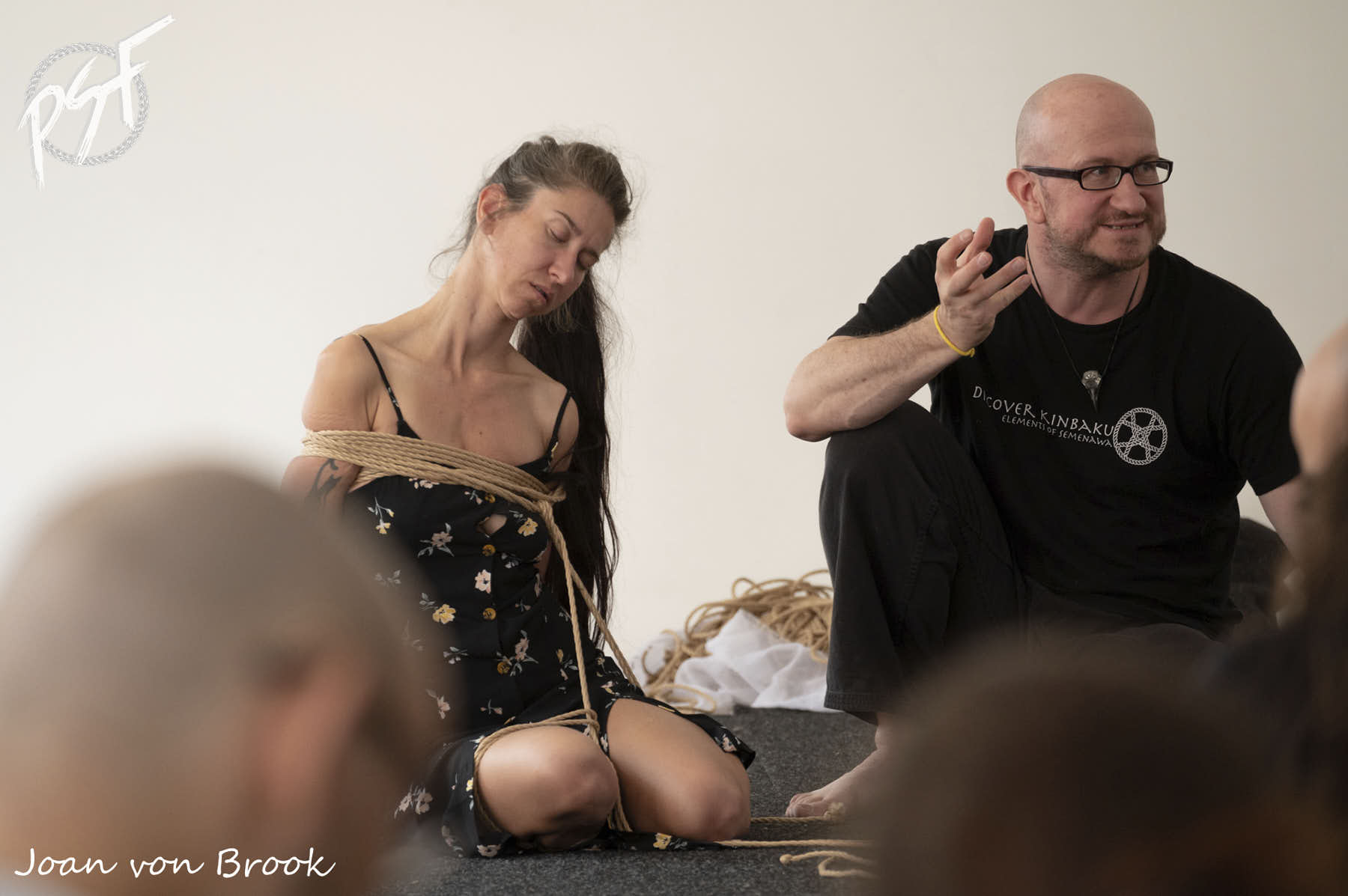Here is my answer to a question I received from someone on social media. I was asked about the difficulty of letting go (of control) during the rope sessions. I am copying part of it here in case it might be helpful for others... By the way, you can always send me your own questions on info@ropesomatics.com
It is a very complex topic what you address.
It is not a very comfortable position to give any remote advices, when i don’t have a chance to observe what is happening with your body in that moment. So my answer is: i do not know, i cannot know.
I can try to offer you a few questions, and if you feel something sounds true for you, it is your choice to pick it up and work deeper with it.
First of all,
There is a place for good rope technique. Does your rigger have good enough technique that they can do challenging stuff without harming you? Most of the time, when I’m tied, i do not have pain. It might be uncomfortable, challenging, exhausting, overwhelming, scary, but I rarely have pain from the rope that is displaced on my body and hurts my bone or my joint, rope that is too tight and stopping the blood flow, rope that is too loose, sliding down my leg, pinches my skin, uneven wraps that hurt my flesh under my weight in suspension. Most of the time I have a harness I can really relax into.
That makes a huge difference in the question of letting go.
Second,
Given that the first question of decent rope techniques is sorted, there are 3 elements in regard to your inner process of „letting go“: safety, choice, attention.
Safety
Do you know the feeling of being safe? I don’t mean intellectual concept of safety, but the feeling, sensations in your body? How does safety feels to you?.. The fact is, it is very difficult to relax into discomfort (in ropes) when we don’t know safety outside of ropes. We do not learn safety when it is already intense. We first need to know how it feels „safe“, in order to comfortably play with the feeling „unsafe“. It is a fundament for our self-trust: i trust myself into the discomfort, whilst i trust myself i can tell the difference when it gets really unsafe and i can instantly speak up.
Choice
Are you and your partner on the same page about what you do in ropes? Is it (also) your choice what you do in ropes together? Could it be that “not letting go” or “rope technique is wrong” is the way to tap out of something you don’t really enjoy?
Have you offered your partner what they do to you, or do they just do it and you feel pressured to get along? Is it really your choice and your “gift” to them?
Attention
What is your general attention pattern? How easily do you “let go” and “go with the flow” in other contexts: sex, massage, dance, music, sports…? It may be that this pattern shows up in other practices as well, just more often in rope, because rope has the intensity. Or its more difficult to hide in ropes because it is shared experience.
Finally,
Another possibility, could it be that you just a bit dramatizing it? The fact is that the human brain anticipates danger, that is its main function, that is why humans have been able to survive. I can tell you that I have this inner dialog in ropes from time to time and I know that some very experienced models have this dialog from time to time and that is okay. Our brains just worry about the future.
The question is, what to do with this brain function? Are there other possibilities than being angry in that moment? Can we meet it with love? Can we meet it with acceptance? Can we say “thank you” for trying to protect us? I think if we accept it for what it is, then it also offers the possibility of change.
I hope there is something for you.
Natasha
